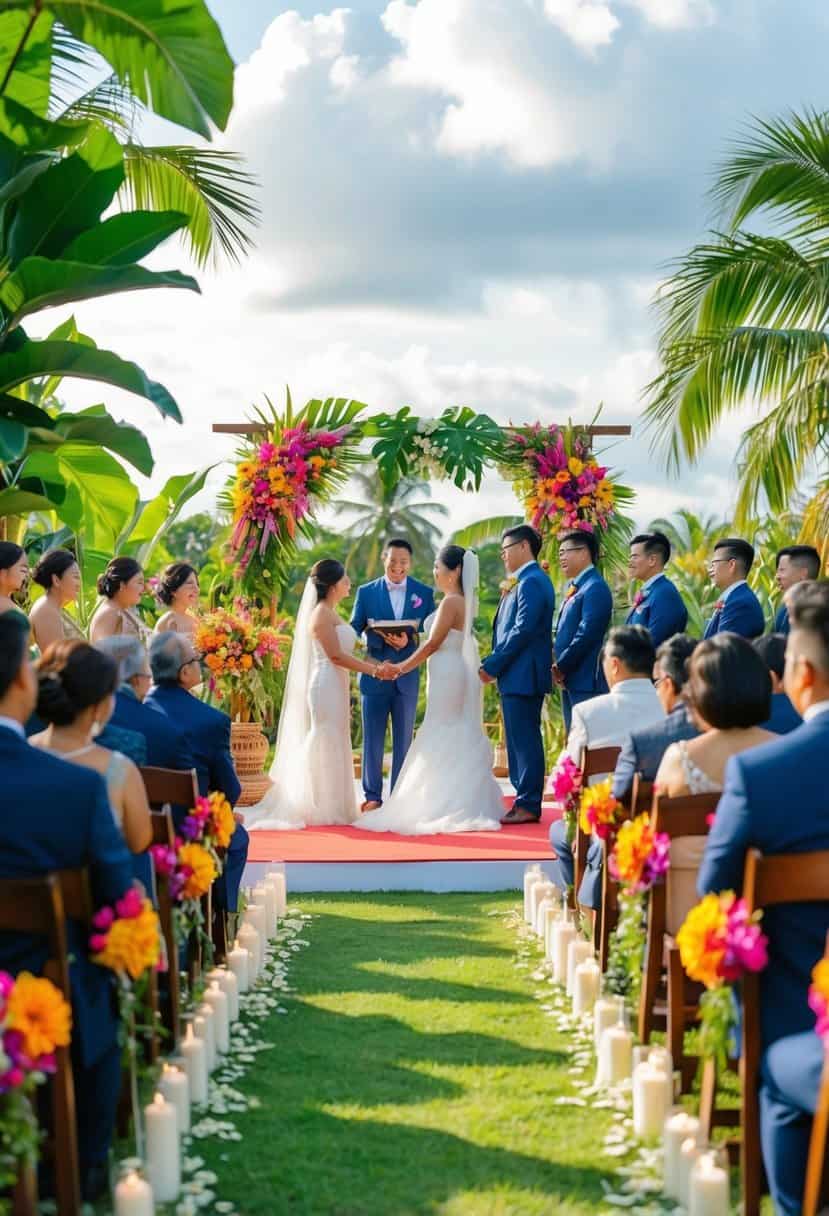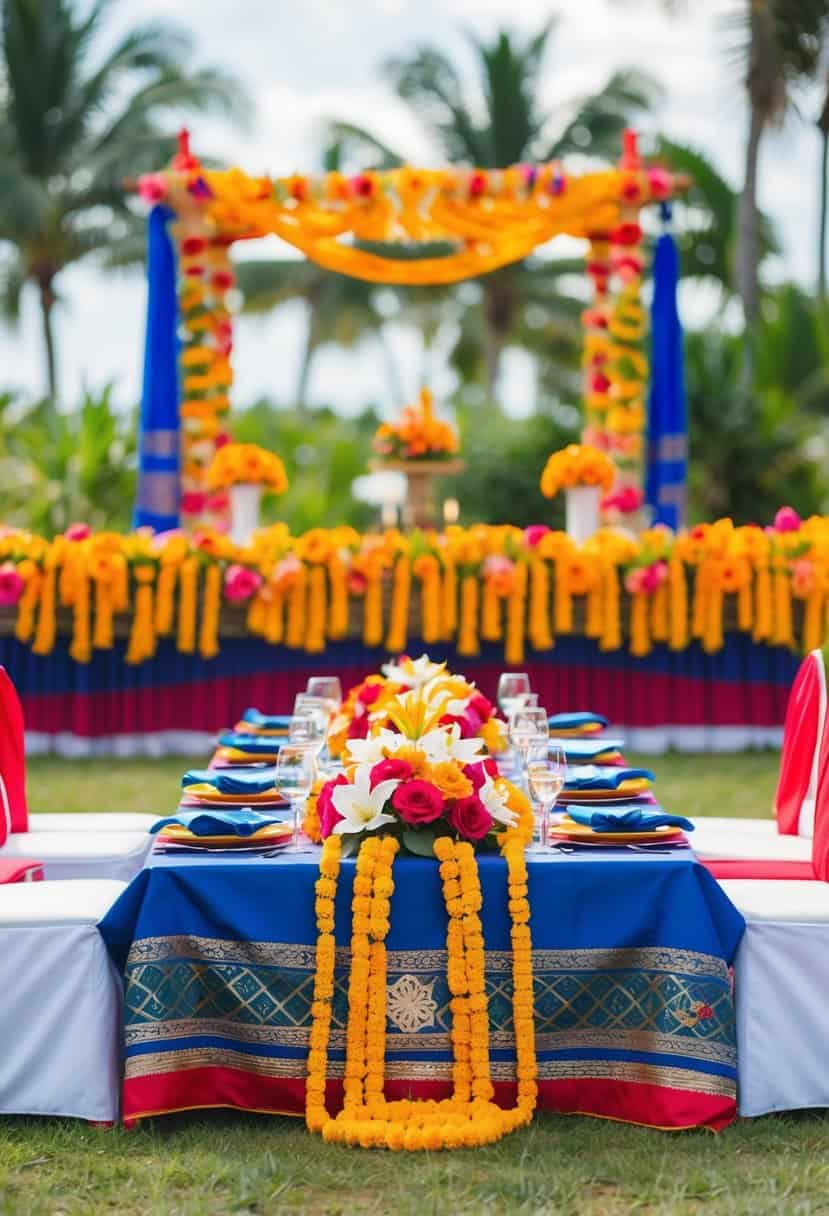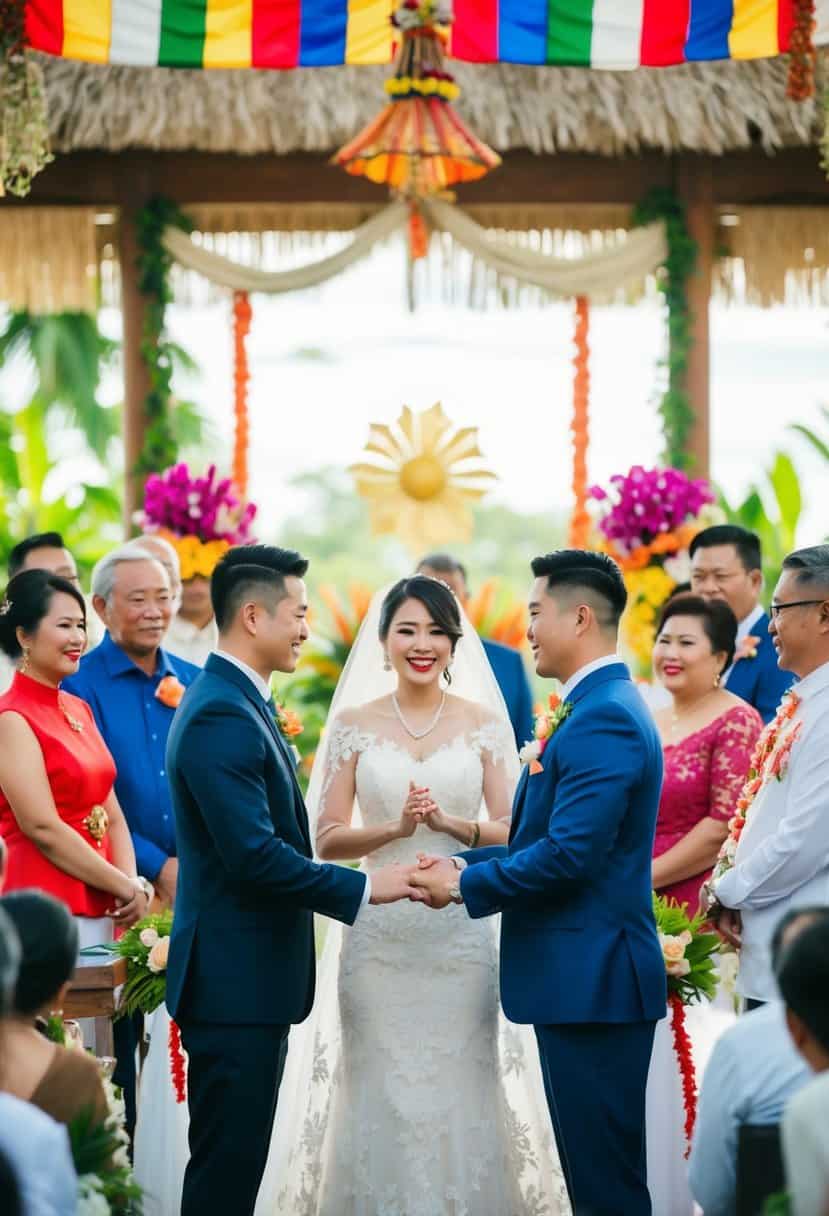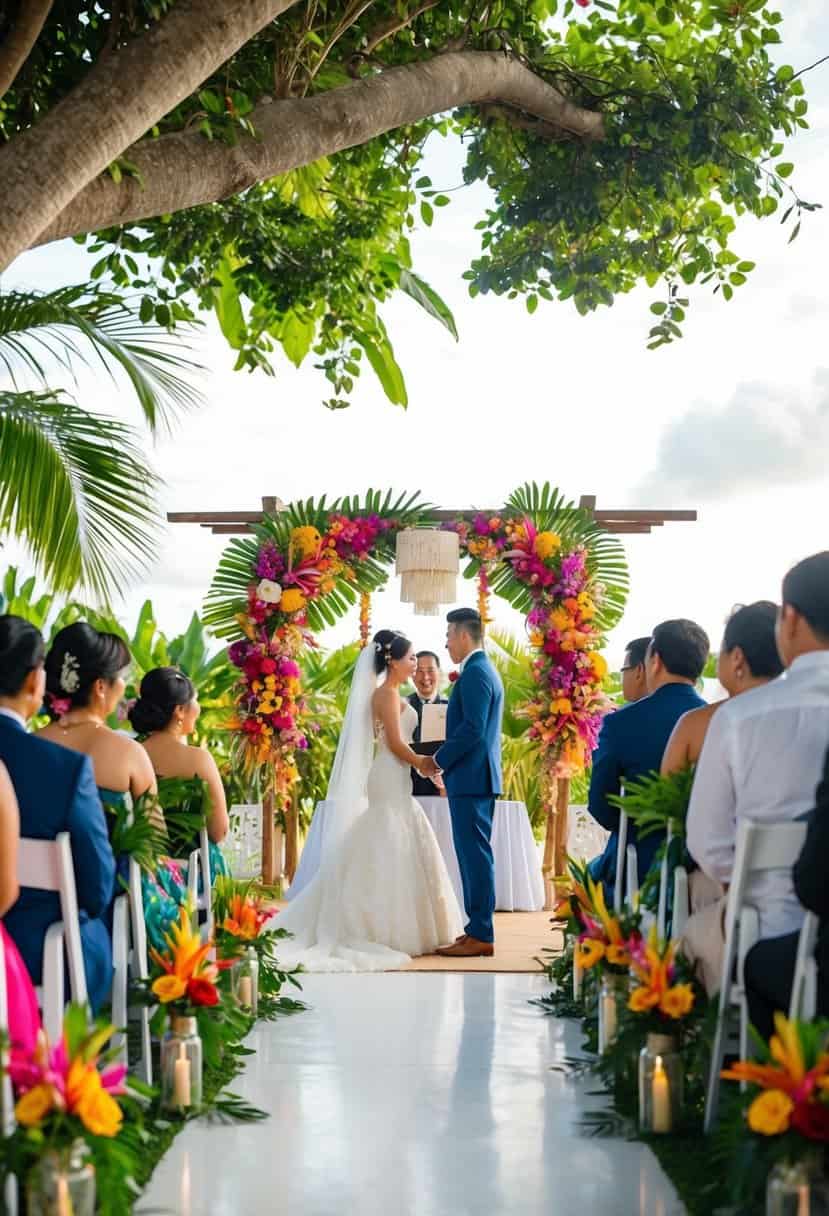How Much Does a Wedding Cost in the Philippines? Budgeting Tips for Couples
Planning a wedding in the Philippines can be both exciting and overwhelming. One of the first questions you might have is about the overall cost. For a typical wedding in the Philippines, you might spend anywhere from ₱50,000 to ₱300,000 for about 100 guests. This range can give you a sense of what to expect as you start to budget your dream day.

A church wedding with around 150 guests could see costs stretching even further. Expenses like the groom’s attire, legal documents, and wedding cake can add up quickly. On the other hand, a simple civil wedding might be more affordable, ranging from ₱20,000 to ₱50,000, covering essential fees like the marriage license and venue rental.
Making informed choices can help you align your wedding plans with your budget. Choosing the right venue and being selective about decorations are just a couple of ways to reduce costs. Understanding these factors empowers you to create a beautiful day without breaking the bank.
Understanding Wedding Costs in the Philippines

Planning a wedding in the Philippines involves budgeting for various expenses. From venue choices to attire, you must consider numerous elements that affect the overall cost.
Average Expenses Breakdown
Weddings in the Philippines can range widely in terms of budget. For a celebration with around 100 guests, costs typically fall between ₱50,000 to ₱300,000. Some key expenses might include:
-
Venue and Catering: Often the largest chunk of the budget, venue rentals and catering can take up a significant portion.
-
Attire: A wedding dress might cost between ₱5,000 and ₱50,000, while the groom’s attire ranges from ₱2,500 to ₱20,000.
-
Legal Documents: Expect to set aside around ₱3,000 to ₱6,000 for marriage documents.
-
Decor and Other Extras: Costs for decorations, entertainment, and photography can add up, but they vary based on your preferences and choices.
Factors Affecting Wedding Budget
Several factors can influence how much you spend on your wedding in the Philippines. Firstly, the type of ceremony you choose matters. A civil wedding typically costs between ₱20,000 and ₱50,000, including legal fees and venue rental.
Secondly, the number of guests will significantly affect your expenses. More guests mean higher catering and venue costs. Lastly, personal preferences, such as venue location and decoration style, can either increase or decrease your expenses.
You can manage a simple wedding budget by opting for a less extravagant venue or reducing guest numbers, which helps keep costs down while still having a memorable day.
Types of Weddings

Choosing the right type of wedding is key to creating the celebration of your dreams. Each option comes with its own charm, requirements, and costs. By understanding the distinctions between traditional church weddings, civil ceremonies, and more intimate settings like gardens or beaches, you can better plan according to your vision and budget.
Church Wedding Overview
A church wedding is a traditional choice for many Filipinos. It typically includes a solemn ceremony in a church, complete with elements like a choir and floral decorations. Costs can vary widely, with essential expenses including groom’s attire ranging from ₱2,500 to ₱20,000 and wedding dresses starting at ₱5,000.
If grand celebrations are your style, consider including a full reception with around 150 guests. Fees can cover the choir, lighting, and church decorations. Catering and venue may increase the expense significantly, usually from ₱50,000 to ₱300,000 for 100 guests in locations like Tagaytay or Quezon City.
Civil Wedding Essentials
A civil wedding is often a simpler and more budget-friendly choice. Held in places like local government offices or city halls, costs are generally lower. Essential documents include CENOMAR and birth certificates. These documents can cost around ₱840 and ₱730, respectively.
This type of wedding is ideal if you prefer a low-key, intimate ceremony. You can even plan a small celebration at home or another venue of your choice with close family and friends. This can often be organized with minimal fuss, making it a practical option.
Intimate, Garden, and Beach Weddings
Intimate weddings offer a cozy atmosphere, whether you choose a garden or beach setting. These venues provide a natural backdrop, reducing the need for extensive décor. Many couples find this option provides a peaceful and romantic ambiance ideal for celebrating with close friends and family.
A garden wedding can be particularly charming with a subtle touch of floral arrangements. Meanwhile, a beach wedding in the Philippines takes advantage of the stunning coastline, though it may require permits and additional planning. Opting for these venues often provides a unique and memorable experience, perfect for more personal celebrations.
Legal and Documentary Requirements

When planning a wedding in the Philippines, you need to gather several legal documents. These are needed for both civil and church ceremonies. This section will guide you on the necessary papers and seminars required.
Marriage License and Certificates
To get married, you must obtain a marriage license. This involves submitting a few key documents. You will need your Certificate of No Marriage (CENOMAR) from the Philippine Statistics Authority (PSA). This confirms you are free to marry. You also need your PSA Birth Certificate and a Community Tax Certificate.
For those under 25, attending a pre-marriage counseling seminar is also necessary. If you’re between 18 and 21, parental consent is required. The marriage license application also involves fees, which vary by city. Keep in mind that the marriage license is valid for 120 days.
Additional Documents and Seminars
For a church wedding, your requirements may vary slightly. Many churches need a baptismal and confirmation certificate, apart from the regular documents. A pre-marriage seminar at the church is often required too.
In cases of previous marriages, proof of annulment or a death certificate is needed. Be prepared to attend necessary seminars offered by both the government and church organizations. These can offer valuable insights into married life. Make sure to check if your chosen location has any unique requirements for these documents or seminars.
Taking care of these steps early can help avoid any last-minute surprises on your special day.
Planning the Big Day

Planning your wedding involves choosing the right date, securing a venue, and hiring professionals who can help make your day special. With careful planning and consideration, your wedding day can turn into a memorable celebration.
Selecting the Date and Venue
Choosing a date is crucial as it affects everything else. Consider the season and weather in the Philippines. Popular months like December and June might make venues busier and more expensive.
Once the date is set, the next step is finding a venue that suits your vision.
For a civil wedding in the Philippines, consider local city halls or intimate settings. For larger weddings, hotels and resorts are popular choices. Keep your guest list in mind when selecting the size of the venue. It’s also wise to book well in advance to ensure availability.
Hiring a Wedding Planner
Hiring a wedding planner can alleviate much of the stress involved in planning. A planner helps coordinate logistics and ensures your vision is carried out smoothly. They handle everything from vendor communication to timeline creation.
The planner’s experience in the Philippines’ wedding scene is invaluable. They often have connections with preferred suppliers who offer better rates to planners.
When choosing a planner, discuss your budget and expectations. It’s important to find someone who understands your style and the atmosphere you want to create.
Choosing Vendors and Suppliers
Vendors play a huge role in your wedding day. These include photographers, caterers, florists, and entertainers.
Research each vendor carefully. Look at portfolios, read reviews, and have clear contracts.
Select vendors whose style matches your vision. Reach out to wedding suppliers early, especially for popular services like catering and photography. Meet with them to discuss services and pricing.
Many suppliers offer packages that may help you save money. Always have backup options in case a vendor is unavailable on your chosen date.
The Wedding Experience

Planning a wedding in the Philippines involves many exciting choices. From choosing the right ceremony and reception venues to capturing beautiful memories, every part matters.
Ceremony & Reception Details
When planning a wedding ceremony in the Philippines, consider whether you prefer a church ceremony or a civil marriage. Many couples dream of a traditional church wedding, celebrated with friends and family. In such cases, you’ll need to book a venue early, especially in popular locations.
After the ceremony, the wedding reception is where you and your guests celebrate. The reception style can vary, ranging from a grand ballroom event to a cozy garden party.
Decisions around the wedding cake, music, and decorations should reflect your tastes. A larger number of guests might lead to a hearty buffet, while a smaller gathering allows for more personalized dining experiences.
Photography and Souvenirs
Having beautiful wedding photography is key to capturing memories from your special day. You should hire a photographer who understands your vision. This will help ensure you get the shots you want. Look for someone with a portfolio that resonates with you.
Wedding souvenirs or giveaways are another important part of a Philippine wedding. These keep sakes serve as a thank-you to your guests for joining your celebration. Whether it’s personalized items like custom keychains or more traditional wedding giveaways, these gestures create lasting memories for everyone involved.


